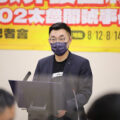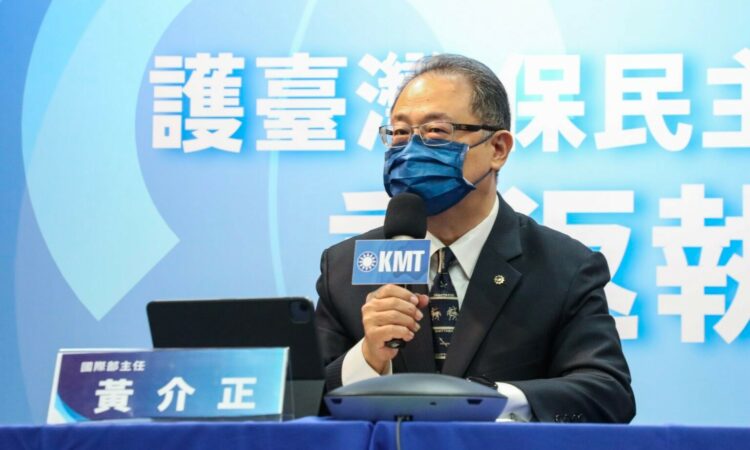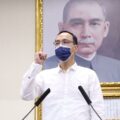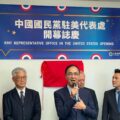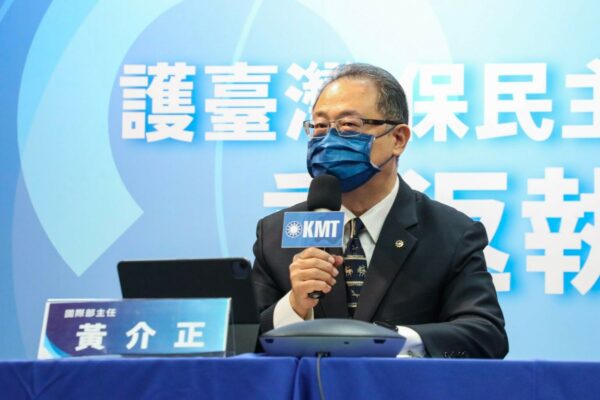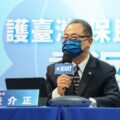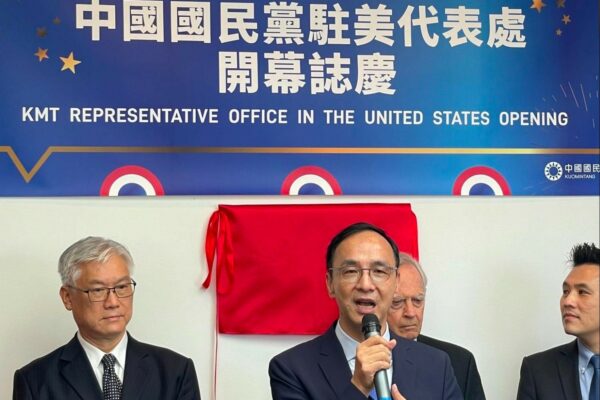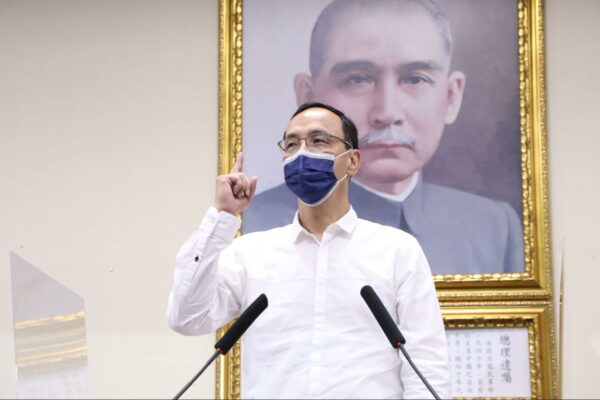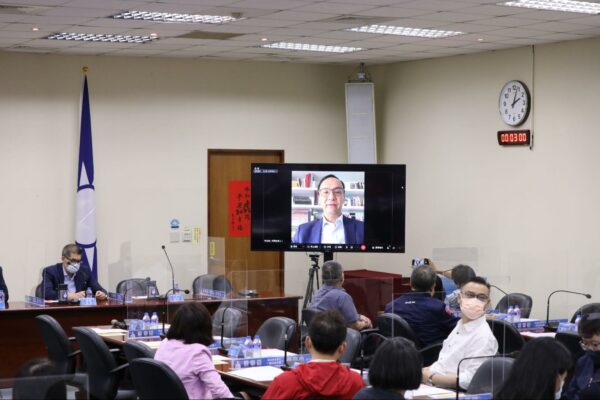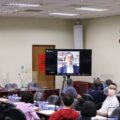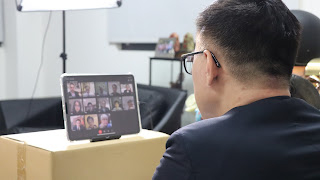
On the evening of August 9, Taipei time, Kuomintang (KMT) Chairman Johnny Chiang and party officers participated in a video discussion with American policy scholars, focusing on current U.S.-Taiwan interactions, national defense, the state of affairs in Hong Kong, as well as reforms and challenges since Chairman Chiang took office. Chairman Chiang also exchanged perspectives with the American scholars.
In his remarks, Chairman Chiang said that he spared no effort in shouldering the responsibility of leading the KMT during its most difficult time. Chairman Chiang added that over the past year, he carried out organizational reforms, strengthened political narratives, and drew more young blood into the KMT. In addition, he was able to conduct cross-strait policy consistent with the ideals of Dr. Sun Yat-sen which founded the Republic of China and based upon the ROC Constitution.
Chairman Chiang also described the two biggest external challenges he has faced since assuming the chairmanship. First, the Democratic Progressive Party (DPP) and the administration of President Tsai Ing-wen have been influencing the media and manipulating cyber armies, including shutting down a television news station which opposed the government. Second, the DPP administration has been freezing the KMT’s assets.
On cross-strait relations, Chairman Chiang indicated that the Kuomintang is the most steadfast defender of the Constitution and sovereignty of the Republic of China. As such, the party opposes Taiwan independence and “One Country, Two Systems” because they deviate from the mainstream opinion within Taiwan. The KMT also proposed the 1992 Consensus based on the ROC Constitution to better illustrate its essence. According to Chairman Chiang, political system and way of life are the ultimate issues facing cross-strait relations. He believes that Taiwan’s democratic development, which is based upon the Three Principles of the People, will sure play a role in the future road of political reform on the Chinese mainland. The two sides of the Taiwan Strait should seek a political principle and foundation compatible with the 1992 Consensus so as to open meaningful cross-strait dialogue.
Chairman Chiang stated that the KMT upholds the ROC sovereignty and putting the people of Taiwan first and espouses a policy stance of “close to the United States and maintaining peace with the Chinese mainland.” Cross-strait relations may be improved while furthering relations with the United States; the two are not at odds. Chairman Chiang also stated that the KMT continues to oppose military drill operations conducted by the Beijing authorities around Taiwan’s neighboring waters and air space as well as restrictions on the ROC’s international participation. These actions are contrary to building cross-strait stability and mutual trust.
As the youngest leader of the KMT since 1949, Chairman Chiang expressed confidence that he will continue to lead the KMT to promote reforms, make important progress in U.S. and cross-strait affairs, and lead the party selflessly in the 2022 and 2024 elections.
Finally, Chairman Chiang stated that despite the ongoing coronavirus (COVID-19) pandemic and the inconvenience of cross-border travel, communication with the United States must continue. In the short term, the KMT will invite local scholars familiar with the KMT’s foreign policy and international relations, to explain the party’s position to relevant parties in the United States, so as to earn further understanding and support.
